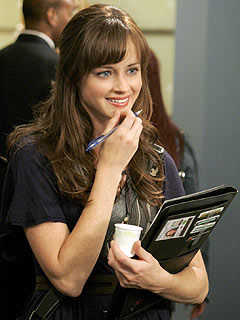The human mind is on a mission to overcomplicate the world. It convinces us that our problems are so complex that their resolution is only possible when a million factors click into place. We might feel like we haven’t become the best versions of ourselves yet because we say awkward things in social situations, or because we haven’t solidified a friend group full of people that inspire us. We believe that once we finally remedy every single one of these issues, we can finally enjoy being alone with our thoughts.

Many self-help books try to help people with this but often fall short due to one thing: they are equally as overcomplicated. Self-help books are often divided into chapters that address each facet of improvement you could make, from social assistance to improving mental well-being. Although these are important things to work on, your mind may not be able to utilize the information because it’s in a dense, sometimes inapplicable format.

If you have identified that self-help books are not the key to understanding yourself or finding inner peace, there is another avenue that may be more successful.
Powerfully Simple
Turning to childhood stories in times of hardship can be more effective than traditional self-help books. Their power lies in their simplicity and digestibility. These books seem like a nice little story on the surface, but they often pack important lessons about life in their plot.
Take “The Giving Tree” for example. This story showcases a boy who takes apples, wood and anything else he can from a tree that simply wants to please him. The story ends with the boy, now an old man, sitting on the stump of the tree because he took every other part of it for his own needs. The boy gives us insight into our selfish tendencies. He appears to be the villain of the story, which leaves us feeling like we’re also a villain of some kind. It leaves the reader wondering if they’ve taken too much from people in their own lives. You can’t help but engage in self-reflection after such an emotional story.

Other examples of powerful children’s literature include work by Roald Dahl and Dr. Seuss.
“The BFG” by Roald Dahl tells a story about a girl and a giant growing to become friends, both of whom had previously felt like outcasts. It teaches us that friends can be found in unlikely places and that our initial judgments about someone do not determine a person’s character. After reading this book, you might feel more inclined to befriend people who are different from you.

Dr. Seuss shares similar lessons through the medium of a whimsical art and writing style. “Oh, the Places You’ll Go” beautifully narrates the path of a person’s life once they go out into the world. It acknowledges the failures, uncertainties, and joys that come with getting older. The whimsical, joyful art style allows the reader to digest the existential information with calming ease. You’ll finish the book feeling optimistic about your future because you remember reading the book as a kid, and if it has gotten you this far, you can keep on going.

Thousands of other children’s books share similar lessons and have the same effect on readers. These books had such a grasp on us as kids because we felt deep emotions when we read them. We felt sympathetic for characters who were being wronged and felt drawn to the characters whose experiences hit close to home.
Timeless Lessons
Reading these books as young adults evokes similar emotional responses. We can relate the characters to people in our lives and learn how best to treat them. We learn that kindness is the principal force that determines if our life is joyful or full of regret. The fact that the lessons in books we enjoyed as children are still relevant to us now is a testament to their vitality. They keep us grounded in their ability to maintain meaning over time.
Next time you’re feeling down and doubting your potential, crack open a childhood book. You might be surprised how much good can come out of it.
What childhood books help you get through difficult times? Let us know on Instagram @VALLEYmag.





















2 Comments